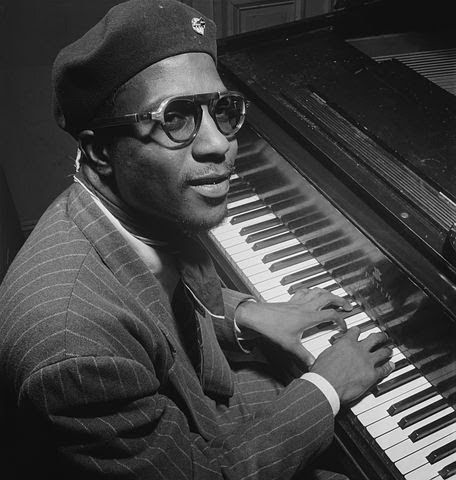
The very cool jazz pianist Thelonious Sphere Monk (1917-1982)
The literal and first meaning of cool is “not warm but not very cold.” For example, “It is cool outside. You should wear a sweater.”
But cool is also very common slang for a number of concepts.
In the early 1700s the word became a description of how a person feels about another person: If your friend's attitude is cool toward you, that means your friend may be upset about something you did, or has decided that you are no longer a friend.
As well, the term cool-headed means “not easily upset or confused in a difficult situation”.
In the early to mid 20th Century in America, cool became a slang word used by African Americans. The OED (Oxford English Dictionary provides this definition of cool as slang:
Attractively shrewd or clever; sophisticated, stylish, classy; fashionable, up to date; sexually attractive.
As to American idioms using cool, here are a few:
Be cool: Do not overreact to a provocation; or do not be afraid of the situation.
Cool it: Stop what you are saying or doing (because it will cause trouble).
A cool million (dollars): used to emphasize the size of a quantity, usually a quantity of money.
Cool as a cucumber: a person who reacts with calm to any situation.
A cool cat. A person who dresses and acts in an informal and relaxed way; often referring to a musician or a person who is part of the ‘counterculture.”
That’s not cool. Doing something that people do not like and will not allow.
I’ve been cooling my heels: I’ve been waiting a long time for a person who is late because he or she does not respect me or my time.








Comments